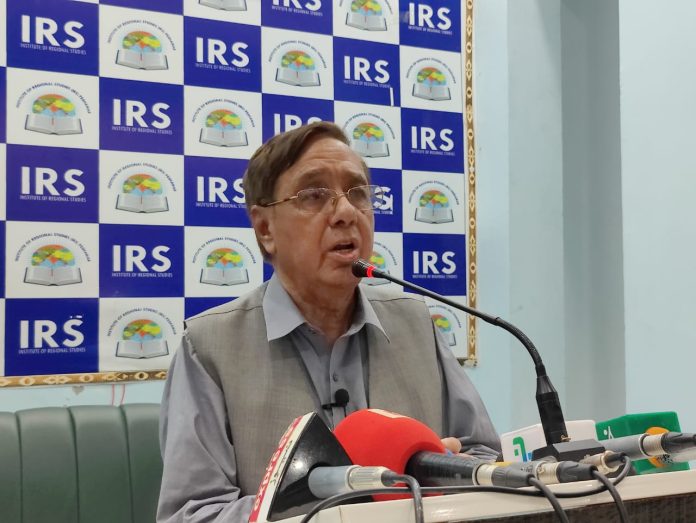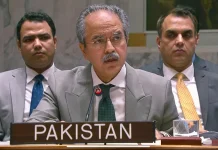By Ashrafuddin Pirzada
LANDIKOTAL: Former Jamaat-e-Islami Ameer and ex-senator Siraj-ul Haq has called for an end to mistrust between Pakistan and Afghanistan, advocating for economic and social integration, border reforms and a new regional alliance to lead the Muslim world.
He was speaking at a seminar titled “New Dimensions of Pak-Afghan Relations” organized by the Institute of Regional Studies (IRS) on Sunday.
Addressing the gathering as chief guest, Siraj-ul Haq said the Afghan nation had repeatedly proven its resilience by defeating the British in 1919, the Soviets in 1979 and the US-led NATO forces in 2001.
“This region cannot be subjugated,” Former JI Ameer said, urging both nations to become partners in trade, development, education and health.
He proposed the revival and extension of the Peshawar-Torkham railway line into Afghanistan, special identity cards for Afghan nationals, and free cross-border movement for documented citizens of both countries. He stressed that historical, religious, cultural and geographic bonds between the two nations must be reinforced for mutual benefit and regional prosperity.
Touching upon regional geopolitics, Sira-ul Haq dismissed any revival of the “Pashtunistan” concept, calling it a “dead issue.” He said the Durand Line is a recognized international border and warned against attempts to create controversy around it. He also claimed that Afghans resisted US imperialism, Pakistan blocked the vision of Akhand Bharat, and Iran opposed the idea of Greater Israel, suggesting that Afghanistan, Pakistan, Iran and Turkey should form a united Islamic bloc to reshape the future of the Muslim world.
Afghan Consul General Hafiz Mohibullah echoed the need for unity, saying the most powerful bond between the two nations is their shared Islamic faith. He thanked the people of Pakistan for their decades-long hospitality and criticized the US occupation of Afghanistan for failing to build hospitals or invest in the education sector. He urged intellectuals, scholars and artists from both nations to increase cross-border engagement to enhance mutual trust.
Zia-ul Haq Sarhadi, Deputy Chairman of the Pak-Afghan Joint Chamber of Commerce, lamented that bilateral trade has plunged from $2.5 billion to just $800 million in recent years due to political tensions. However, he noted a gradual recovery and urged the improvement of visa policies, transit trade procedures, and smoother border management to facilitate commerce. He said Afghan trade has almost 80 percent shifted to Chabahar and Bandar Abbas ports due to restrictions on Pak-Afghan export and import.
Veteran journalist Mehmood Jan Babar and IRS Chairman Dr. Muhammad Iqbal Khalil stressed the need for broad-based cooperation in education, healthcare, culture and media to create a sustainable and peaceful future for both countries.
The seminar concluded with a consensus that Pakistan and Afghanistan must prioritize dialogue and collaboration over division, ensuring long-term regional stability and development through people-to-people contact and institutional partnerships.












